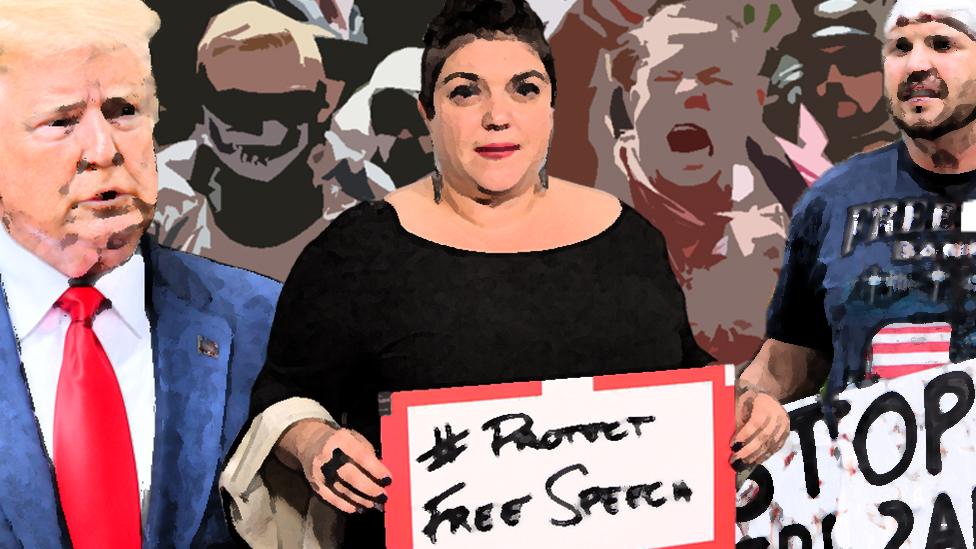'People come for the selfies but won't pay $2 for pizza'
- Published
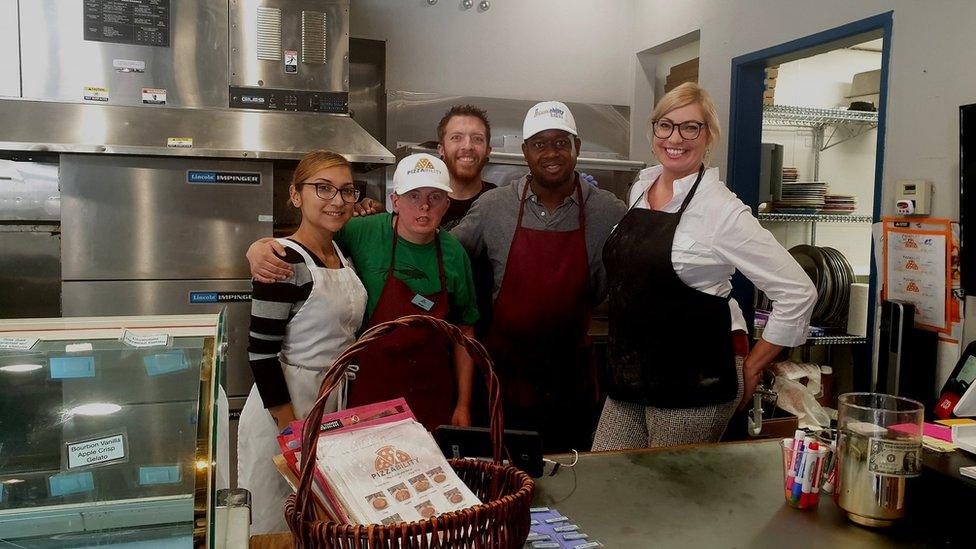
Tiffany Fixter doesn't want her businesses to be considered trendy
For many businesses, becoming a viral hit is a dream scenario but what happens after you're no longer flavour of the week?
Tiffany Fixter, 35, is the owner of Pizzability, a restaurant in Denver, Colorado, that is primarily staffed by disabled workers.
The pizzeria, which opened in the Cherry Creek district last December, became famous in July after she revealed that people were insulting the staff because of stigmas over disability.
Fixter told the BBC: "Since the day we opened we have had people stop and stare at us and we've heard them saying awful things like 'this is where the retards work'.
"It was made clear we're not wanted. It's been hard, though, as the staff want to know why people are so mean."
But when a local journalist reported on this, external, things took a sharp turn.
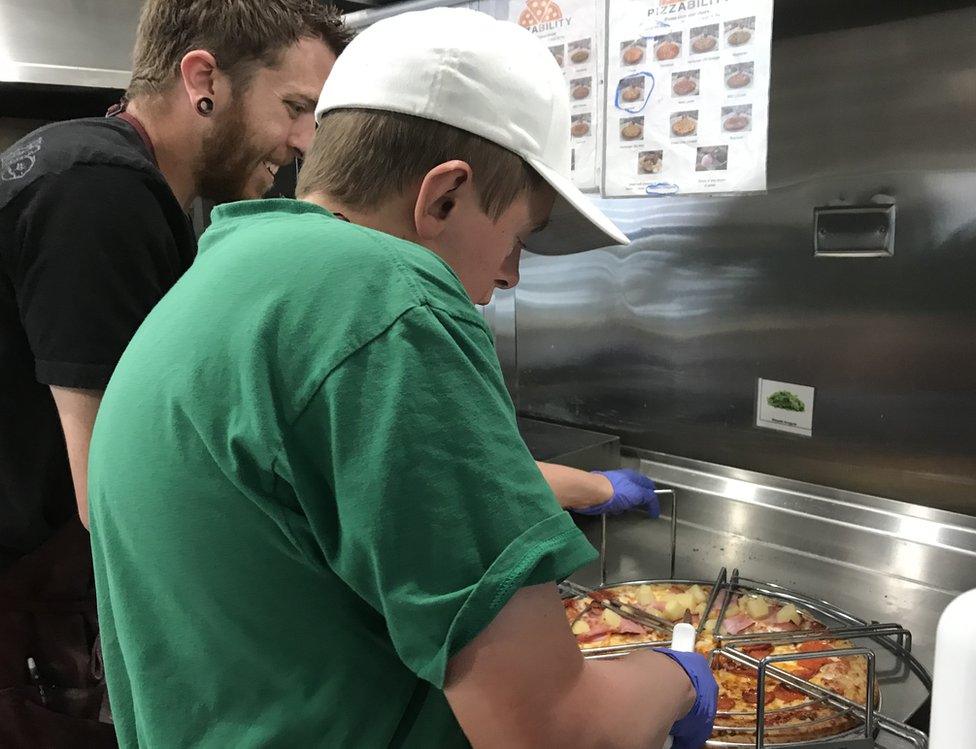
Szandor Krajnik and Brian Olsen work at Pizzability
And from seeing just a handful of customers a day, the queues started to form. People came from all over the country and were willing to wait for up to four hours just to try the pizza.
"When we became viral we went from making $50 (£40) a day to $4,000 (£3,090) day. It was a real shock and I had to take on more staff, get more food in and really ramp everything up," says Fixter.
It was a strange time, as the new customers would get frustrated at the length of the queues, she says.
"I would ask people why they came and they said they saw us on the internet and they were here to help. Yet they would get upset at the fact they had to wait in line."
But that peak lasted just two weeks.
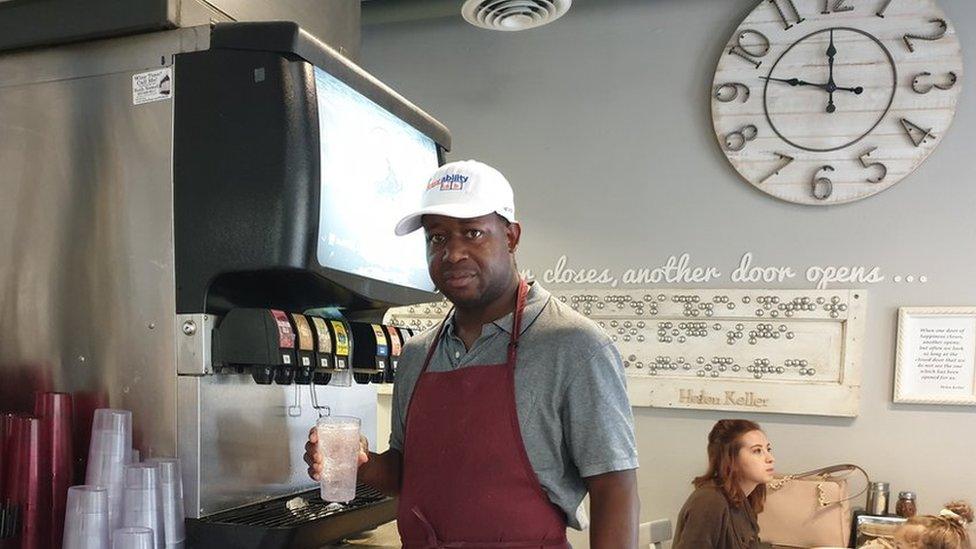
Worker Aaron Harris is concerned about how long the pizzeria could stay open
And while the restaurant remains "instafamous", with people just checking in on social media or taking a picture to prove they made it to this hotspot, they're not buying anything.
Ms Fixter says: "People come by still as they want to take selfies and they take pictures of the food and the site but they aren't coming for the full experience. They are not engaging with the staff.
"It was great to see the social media attention but we became a trend for those weeks. After that peak we went back to the way it was, and right now, we are barely covering our rent let alone staff costs.
"We had a guy come in the other day who took a selfie, ordered a pizza, cancelled it and left. Is it really that hard to order a $2 pizza?"
Fixter, a former special needs teacher, says the whole experience has been an education.
She deliberately set out to hire disabled people because she felt it was important to create a more inclusive society.
More time required
She says: "It is a challenge though. Some people require more supervision for certain tasks [such as] chopping stuff up, so we do have to factor that in.
"Most of our staff members are deemed disabled and find it hard to find a job elsewhere." But she says she has found ways of working with people who are blind or deaf, or have disabilities such as cerebral palsy, autism, or obsessive compulsive disorder.
Everything in the restaurant has been created to be accessible from the Braille labels on the fizzy drinks machine, to the weighted cutlery, to the sensory wall and the wide spaces for wheelchairs to easily move through.
And in 2016, Fixter set up America's first brewery staffed primarily by disabled people, Brewability. This was a success but for various reasons this year she also had to prepare to relaunch the brewery at a new Colorado location while dealing the situation at the pizzeria.
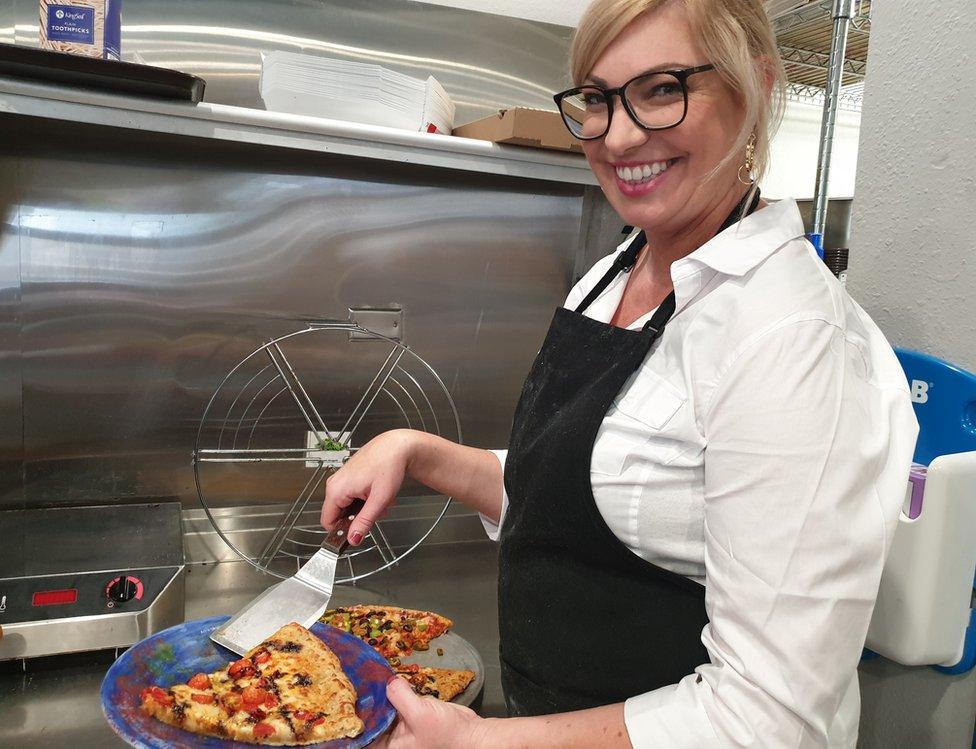
Tiffany Fixter needs visitors to actually spend money rather than just take pictures

But, she stresses, the businesses are not "a sob story".
"We don't want people coming here out of pity. We want people to come because the food is good and the drink is good and because there is a need for a pizzeria and brewery that are accessible and give people an opportunity," she says.
On the day the BBC visited, while there was a quiet period in the morning where the staff kept themselves busy preparing pizzas and cleaning, a trickle of customers soon began.
Brittany Freyta came with her husband and daughter to mark her birthday.
"I'd never been here before. I thought it was a cool idea and I'd seen information about it being shared on Facebook. I think it's great they are giving people with disabilities a chance to feel included."
After eating the pizza, she said she would definitely be returning as she'd really enjoyed her meal.
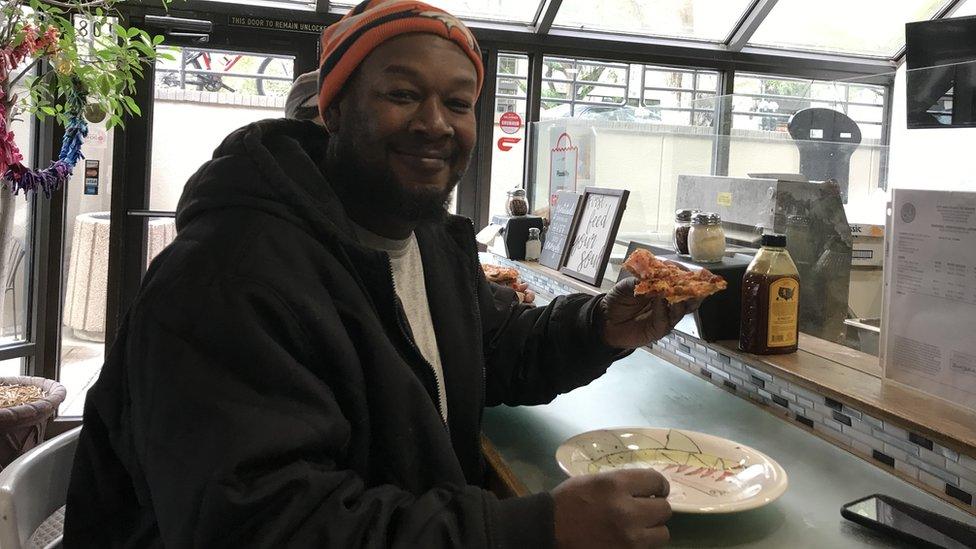
Beshear Randle wants to offer help to Fixter because he believes in her mission
Beshear Randle, a regular customer at Brewability, donated furniture parts to Ms Fixter's business. He came by to taste the pizza and said: "I like [that] she hires people with disabilities and gives them an opportunity to work. The pizza is also great."
But while the food got a thumbs-up from customers on the day, even staff members share Fixter's concerns about the viability of the business.
Aaron Harris, who is autistic, bipolar and has ADHD, has been with the company since the pizzeria opened.
He said: "I love making pizzas and having a stable job. But if nobody comes, I am concerned about what we will do next."
But Fixter says she's not about to give up: "It's been a tough year. I sold my house in Kansas City to help me achieve this dream.
"It's important to me to keep going and I will do. As much as I can."
- Published28 July 2019
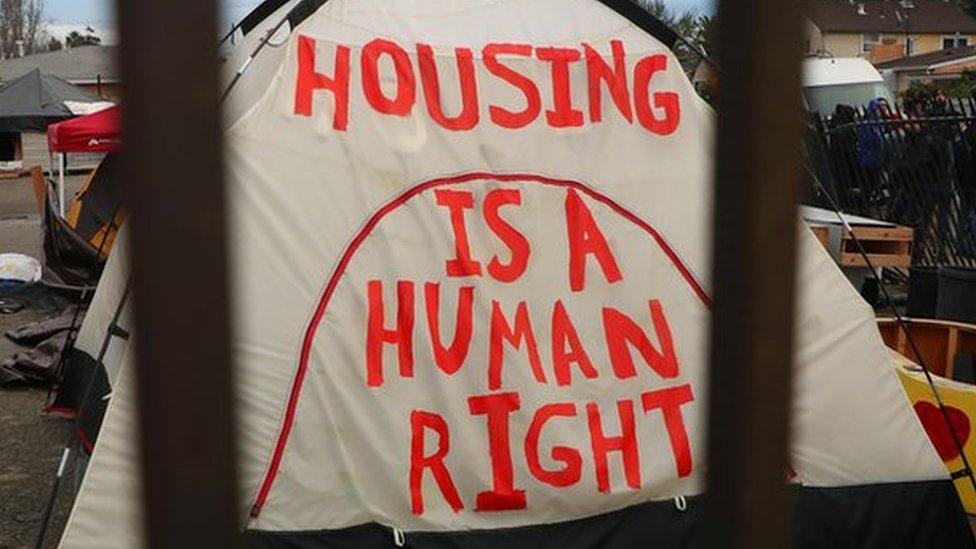
- Published29 July 2019
